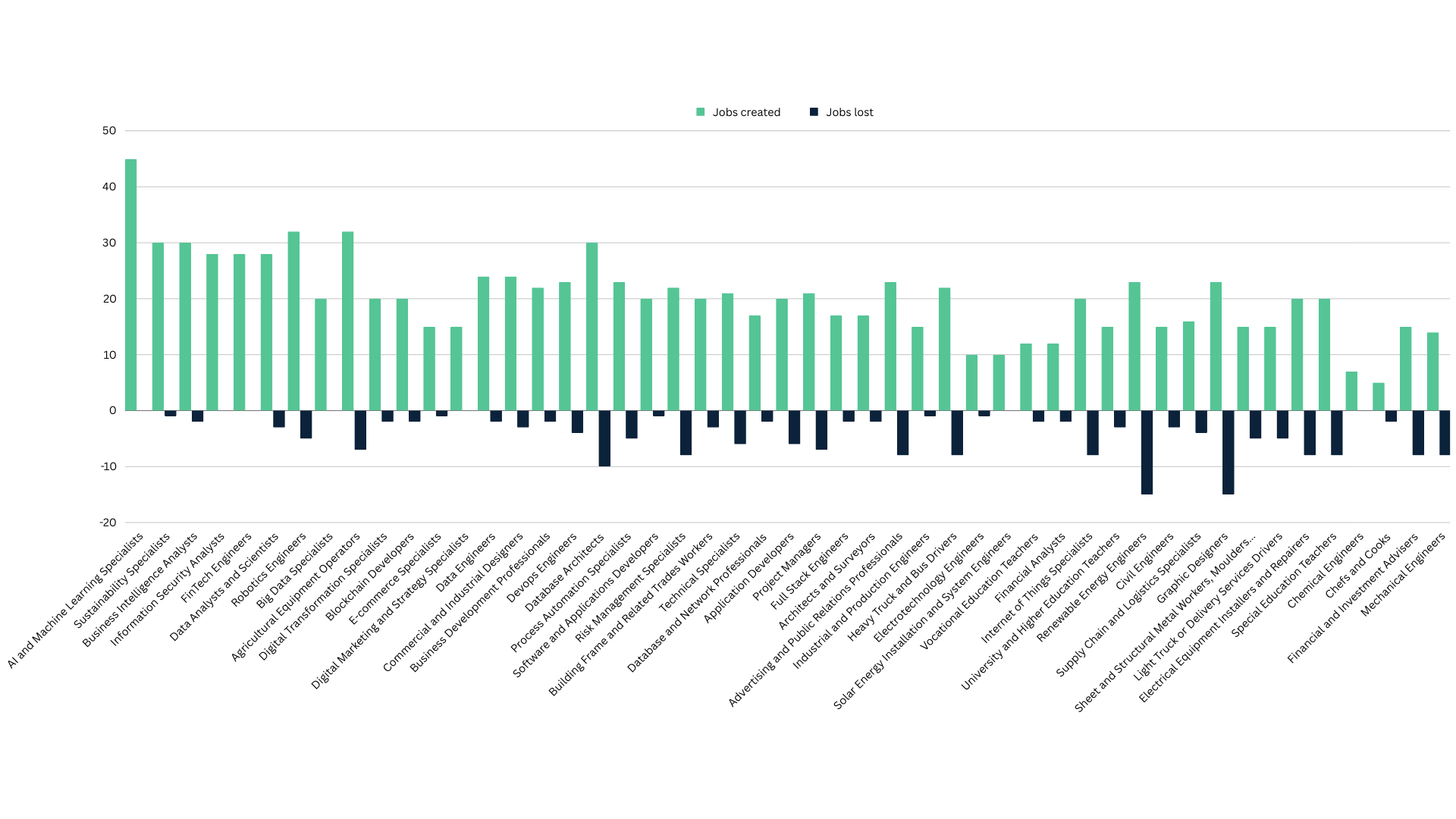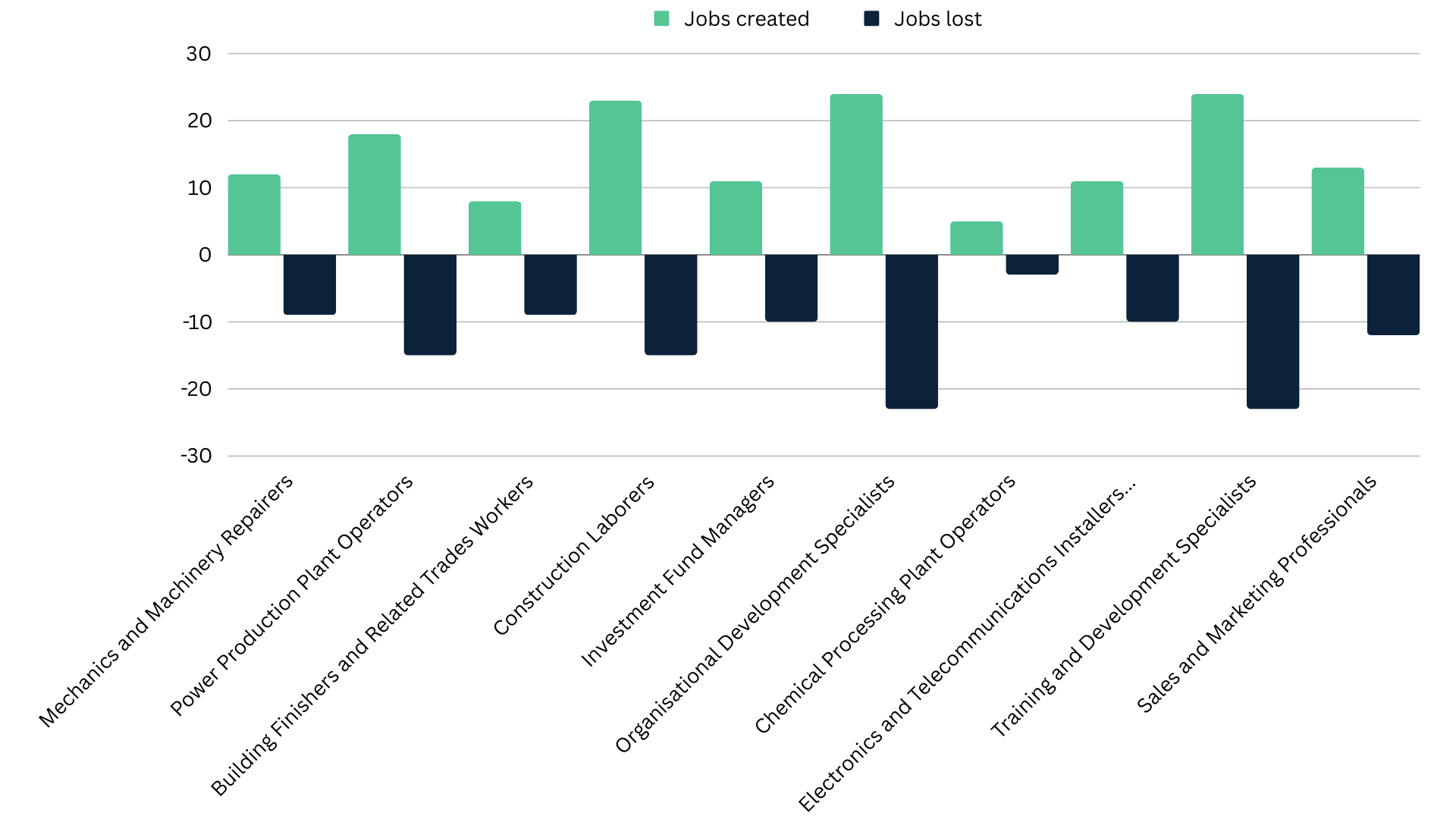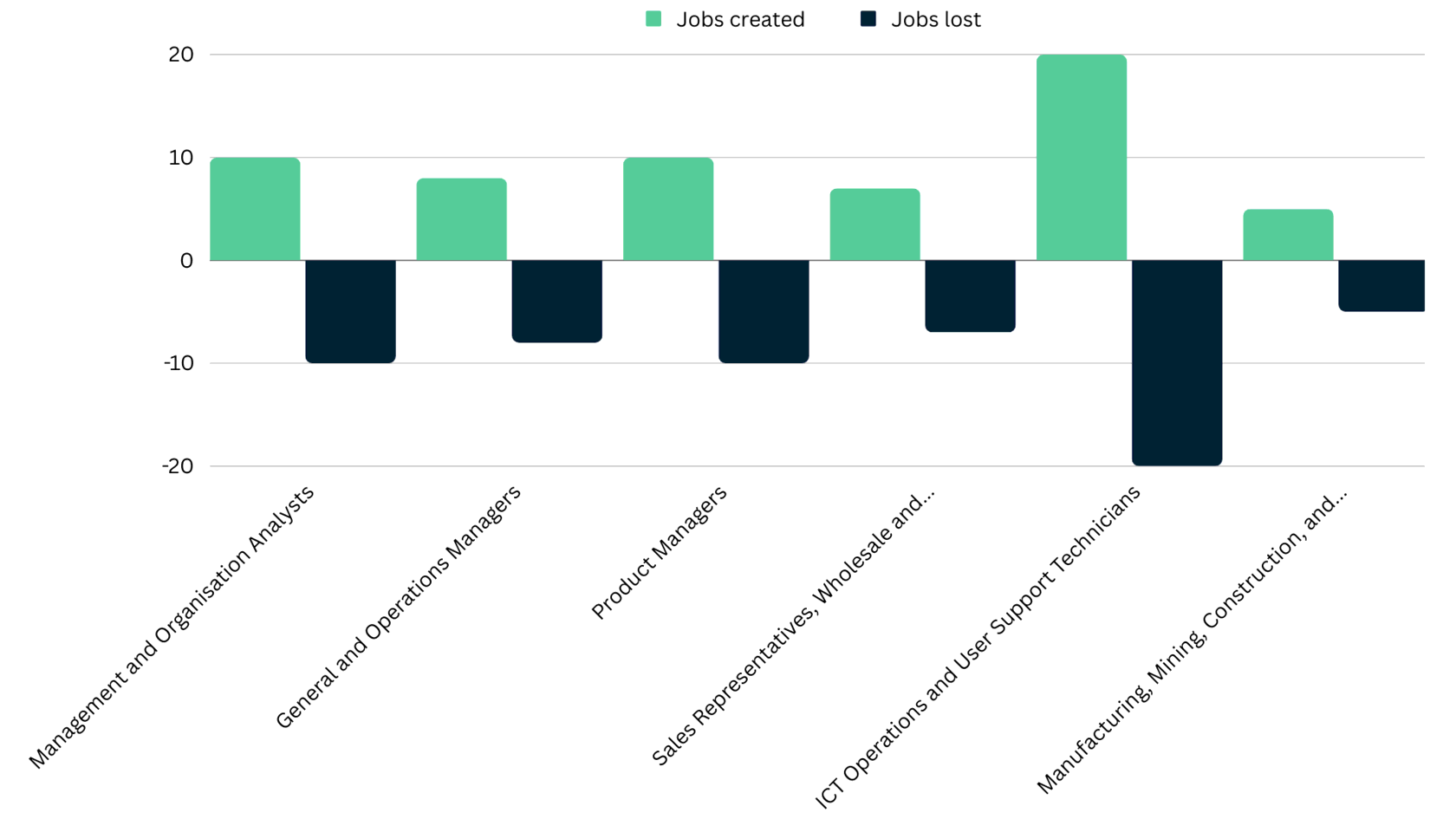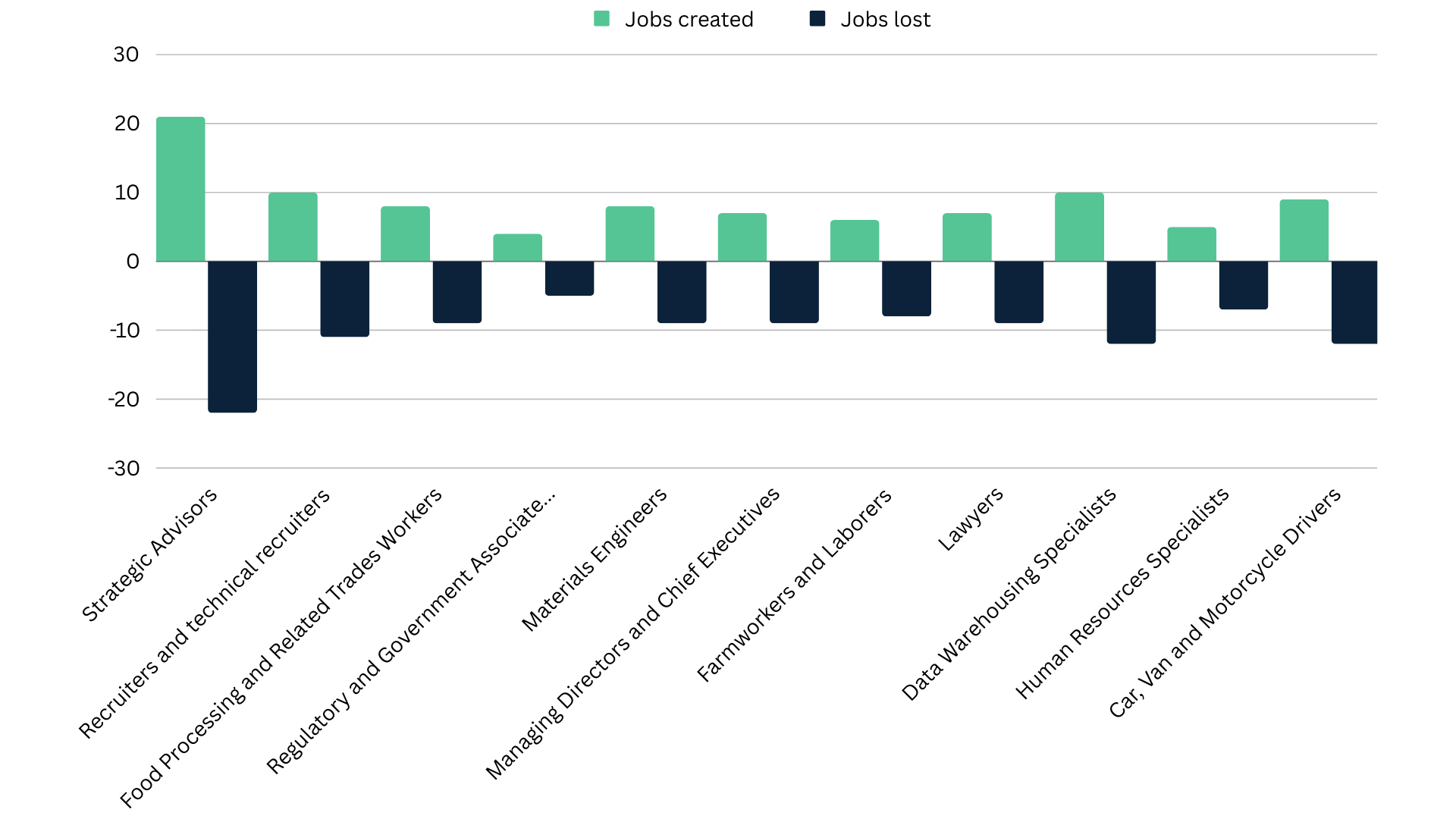This article addresses the workers of tomorrow. The world is undergoing huge transformations and they are happening rapidly. Taking the traditional education system timeframe and the cognitive ability to learn new skills, we must think about the transformations the labour market will adopt in the next 5 years. For those students who are just now deciding what subjects to study toward their university degrees and future employment; for those willing to know where there will be more opportunity and less competition; for those interested in where their skills and knowledge will be most desirable - this is the article on the future of jobs by 2027.
Overall, the next five years will create 69 million new jobs globally, whilst 83 million jobs will be obliterated. Although this may sound pessimistic, these trends are subject to a high degree of volatility as it is difficult to encompass all the factors at play. First, we must consider what the biggest drivers are to the adjusting labour market. Current forecasts on the most growing and declining jobs are consistent with analyses from previous years, which confirms the biggest predictors of these changing labour trends: technological applications and automation.
Expectations are that we will see a significant job growth in digital-trade related jobs and a reduction in roles requiring face-to-face services and record-keeping will become less necessary.
Incorporation of emerging technologies such as AI and quantum computing will drive job growth across industries that currently do not employ large numbers of people: big data analysts in financial services, retail and wholesale of consumer goods, supply chain and transportation (42%), information technology and digital communications. Of course, we will also see a whole new industry emerging with a whole new family of jobs, that being the AI and machine learning specialists.
Another factor that will significantly impact the labour market is the shift in morale and adoption of greater responsibility toward securing a greener and healthier future of the planet. With currently low levels of employers in green energy industries, we are expecting to see a huge surge in jobs in this sector. Such growth will include demand for renewable energy engineers and solar energy installation and system engineers, as well as for sustainability specialists and environmental protection professionals. This trend will also create demand for agricultural jobs.
How to read the data.
Figure 1 (a, b, c and d) represents the labour market churn. Each role is represented as the proportion of jobs that are expected to be created in this field by 2027 and the proportion of jobs that are expected to be lost in this field. With this, the data visualises the net expansion of the role over the next 5 years.
Figure 2 (a and b) represents the largest growth in leading roles in millions of jobs created as well as the largest decline in leading roles in millions of jobs over the next 5 years (2023-2027).
Figure 1 (a, b, c and d) represents the labour market churn. Each role is represented as the proportion of jobs that are expected to be created in this field by 2027 and the proportion of jobs that are expected to be lost in this field. With this, the data visualises the net expansion of the role over the next 5 years.
- Figure 1a represents the trend of jobs that expect significantly more roles to be created than lost;
- Figure 1b represents the trend of jobs that expect a minor net increase;
- Figure 1c represents the trend of jobs that expect an equal increase, as they do decrease (net zero);
- Figure 1d represents the trend of jobs that expect a minor net loss;
- Figure 1e represents the trend of jobs that expect significantly more roles to be lost than created.
Figure 2 (a and b) represents the largest growth in leading roles in millions of jobs created as well as the largest decline in leading roles in millions of jobs over the next 5 years (2023-2027).
Job churn





Job growth/decline in millions


We hope that this data will serve to inspire and assist those in need of professional orientation. We hope that these predictions do not discourage you from the professional and academic development that you have either already chosen or are willing to choose. Remember, the world we will see very soon will be highly interdisciplinary and evermore connected. It is diversity of thought, knowledge, and skills that will drive innovation and solve the world’s most pressing issues. Therefore, despite the statistical value of successful future employment, the emotional value is nonetheless important. Moreover, this data is highly disputable and will hardly represent the real-world picture in 5 years, although this is the closest it will be to the truth. Skills acquired in any discipline will, undoubtedly, be beneficial for the future as long as there is passion behind them.
Data is obtained and processed from the World Economic Forum ‘Future of Jobs’ report
Data is obtained and processed from the World Economic Forum ‘Future of Jobs’ report








